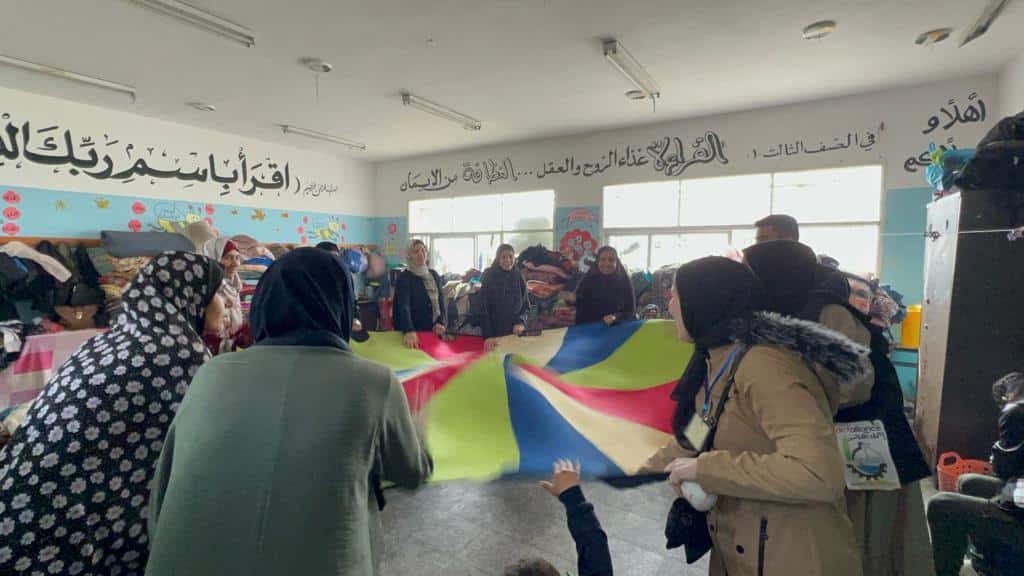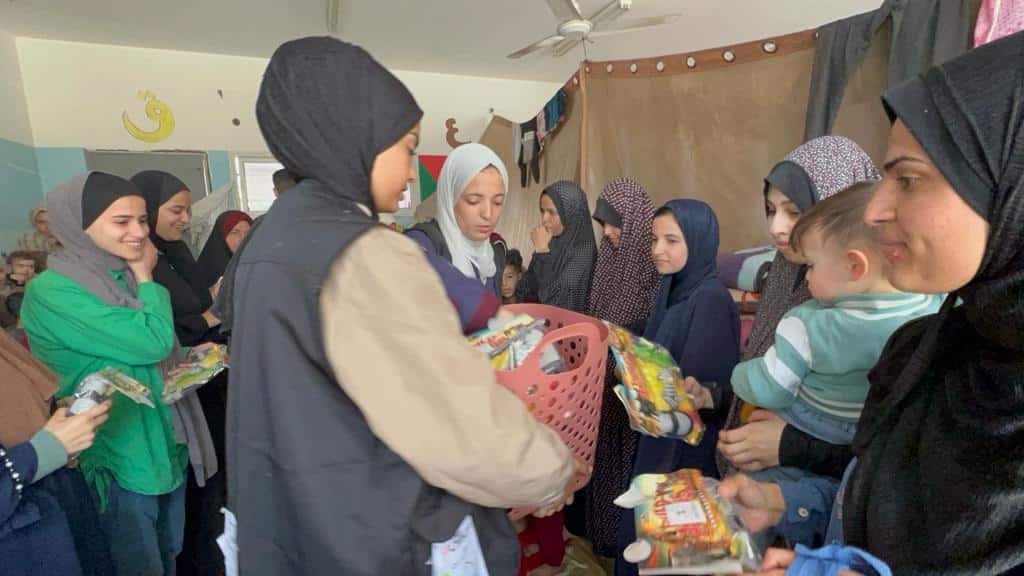WCC: Displaced people south of Gaza face extreme difficulty
Ministering to the needs of displaced people, most of them south of Gaza, the Department of Service to Palestinian Refugees of the Middle East Council of Churches has a clear message to the world.

“We would like the world to know that people in Gaza are dying not only from the Israeli airstrikes and bombardment but also due to thirst, hunger, and lack of medical treatment in the hospitals—while hundreds of trucks are loaded and waiting for Israel to let them enter Gaza,” said Nader Abu Amsha, the department’s director.
For people wondering why they just flee—it’s unsafe to do so, Amsha reported.
“Leaving is very dangerous and uncertain; those who flee from the north to the south are now under shelling and airstrikes,” he said. “The Israeli army told the people of northern areas that Deir Al-Balah, Khan Younes, and Rafah are safe areas, but now the major Israeli military atrocities are in these areas.”
Extreme shortages of water, food, and medical teams, are not only putting the lives of refugees in danger—they are also endangering the staff of the Department of Service to Palestinian Refugees.
“Pray for an immediate ceasefire–and stop killing civilians, especially those taking refuge in churches, schools, hospitals, and public buildings,” urged Amsha.
Dr Audeh Quawas, chairperson of the Middle East Council of Churches Department of Service to Palestinian Refugees central committee (and member of the WCC Central Committee and Executive Committee), said that the department has been focusing on psychosocial interventions for mothers and children to try to prevent psychological illnesses that may result from their traumatic experiences.
“We distribute hygiene kits to help raise the level cleanliness and reduce the spread of communicable diseases,” said Quawas. “We are also organizing health awareness days for groups of mothers to learn better health and nutrition behaviors.”
In the Department of Service to Palestinian Refugees Rafah Clinic, refugees receive primary health care services, as well as some medicines and health supplies.
“We are offering unrestricted cash distribution to 620 households, minimum $100 and maximum 190,” Quawas added. The effort is organized with a bank in Palestine which checks the eligibility of recipients.

In an update, Amsha and Quawas shared their gravest concerns. “The biggest concern is the fear and horror people are going through where no possible safe place anywhere in Gaza, and those who are still alive, live only by God’s mercy,” they shared.
The eviction of Bedouins in different areas is also taking place as well.In a Christmas message, the Department of Service to Palestinian Refugees spoke with a heavy heart. “Our heart aches to convey this message during what should be a season of joy and togetherness.” “This Christmas, our usual celebrations are shadowed by turmoil and the tragedy of Gaza.”

